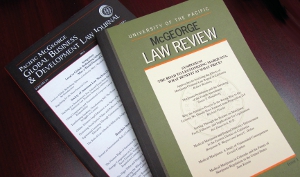Document Type
Article
Publication Date
2016
Abstract
The year 2016 marks the quincentennial of the publication of Thomas More’s novel Utopia. In addition to being an important literary milestone and cultural artifact, Utopiarepresentsa significant marker in the history of political and legal philosophy. I would argue that it also provides an important contribution to the law and literature movement that has flourished in recent decades. It is that contribution that I wish to explore.
This paper begins with a brief introduction to the law and literature movement, in which I identify some of the objectives of the movement and the relationship of More’s novel to those objectives. It then explores three interrelated themes: (1) the meaning and implications of the concepts of utopiaand dystopia; (2) the status of More’s novel as a precursor to post-modernist literature; and (3) the linguistic transformation of the concept of utopia from its original context to contemporary meanings that are often entirely independent of More’s novel. I conclude by arguing that More’s novel is a richer and more sophisticated literary achievement than we may realize, but that this has been obscured by the kidnapping of the concept utopia by both literary successors and popular culture.6 Five hundred years out, it is time to reread and recapture this literary and legal classic on its own terms.
Publication Title
The U. of Pac. L. Rev
Volume
48
First Page
1
Recommended Citation
Michael P. Malloy, UTOPIA and the Law and Literature Movement, 48 The U. of Pac. Law Rev. 1 (2016).



